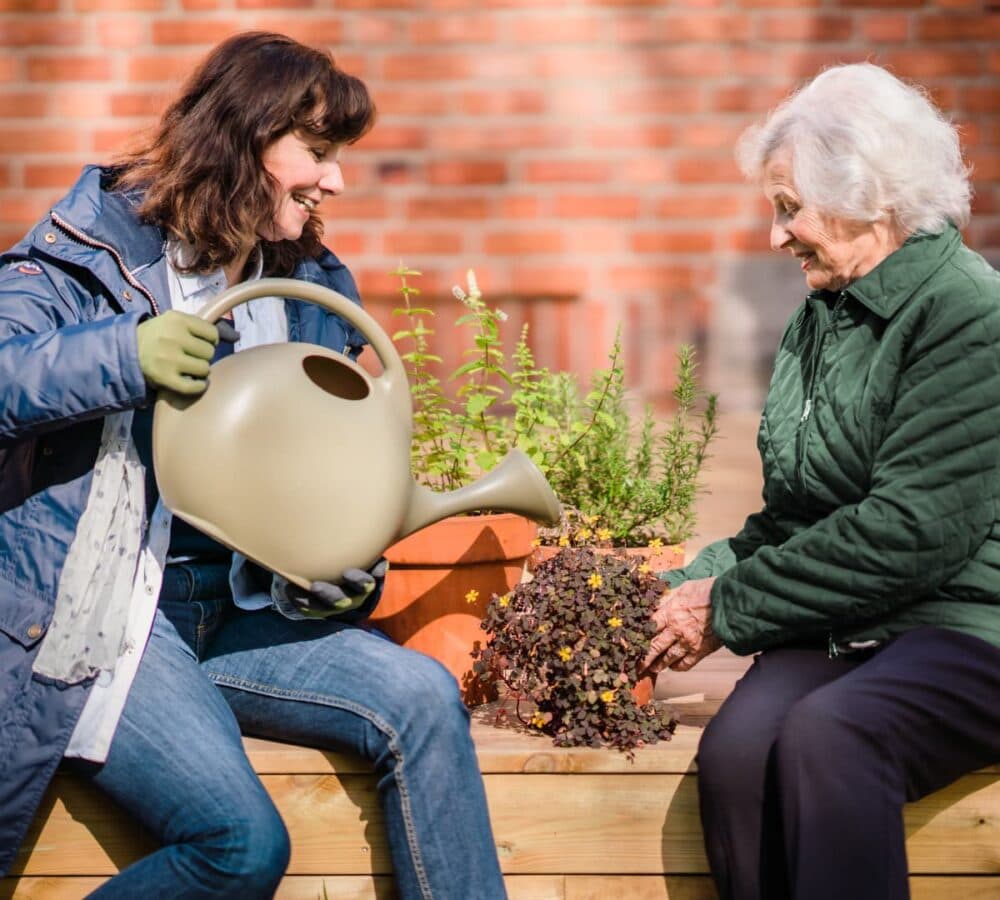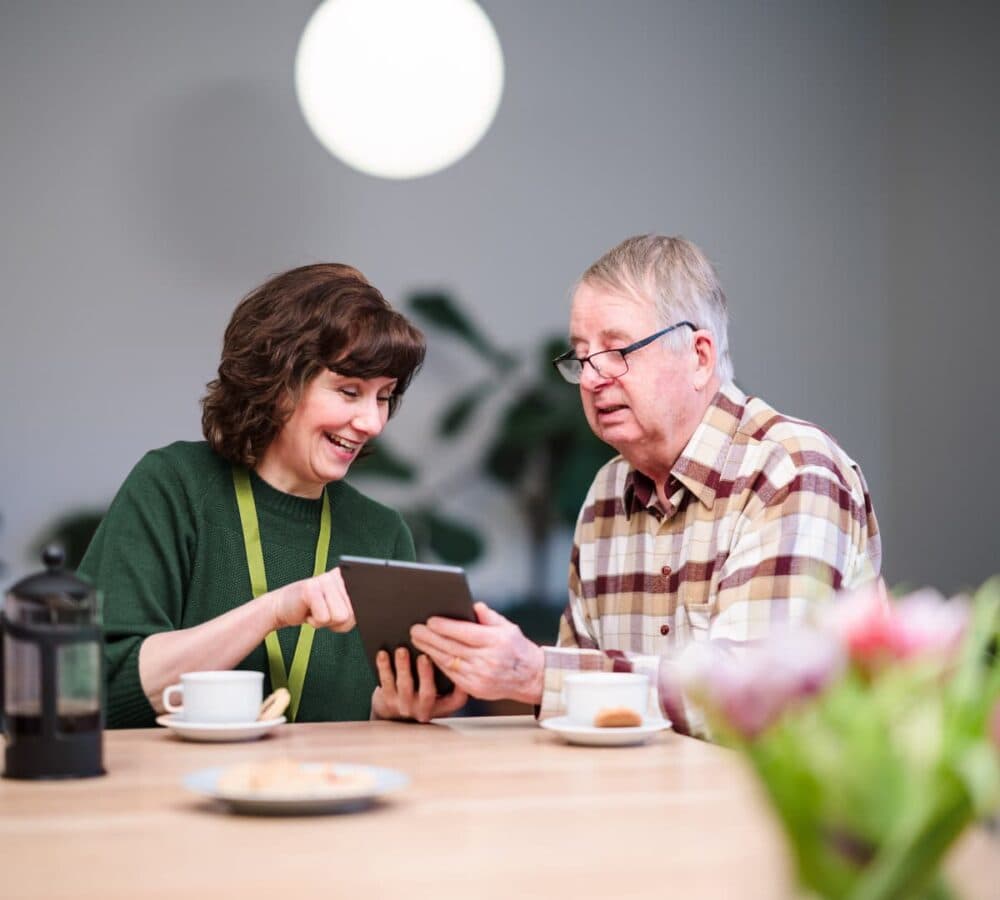Alzheimer’s Awareness Month: Caring at Home in Croydon & Dulwich

When someone you love is diagnosed with Alzheimer’s, one of the first questions families ask is: “How can we make life easier at home?”
September’s World Alzheimer’s Month is a reminder that while dementia can bring challenges, the right support can make home the safest and most reassuring place to be.
In Croydon & Dulwich, our Care Professionals work with families every day to provide tailored dementia care. From practical help to emotional reassurance, it’s often the small, thoughtful acts that matter most.
Everyday Care That Brings Comfort
People living with Alzheimer’s often find comfort in familiar places, faces, and routines. Something as simple as a morning chat over tea, putting on a favourite piece of music, or tending to the garden together can bring joy and reduce anxiety. These moments of connection help maintain identity and dignity while strengthening bonds between loved ones.
At Home Instead, we focus on these details, matching Care Professionals carefully to clients so trust can grow, and ensuring visits are never rushed. Families tell us this consistency gives them peace of mind and helps their loved one feel more secure.

Tips for Families Supporting Someone with Alzheimer’s
Caring for a family member with dementia can be both rewarding and overwhelming. Here are some ideas that can make a difference at home:
– Stick to a rhythm: Daily routines bring reassurance and reduce confusion.
– Make the home simpler: Clear signs, uncluttered spaces, and good lighting all help.
– Keep communication gentle: Short sentences, eye contact, and patience often work best.
– Use memories creatively: Photo albums, familiar songs, or favourite films can spark recognition.
– Take breaks: Don’t be afraid to ask for professional respite support so you can recharge.
Understanding Alzheimer’s
Alzheimer’s is the most common type of dementia, affecting memory, reasoning, and independence. It develops gradually, which means that families often adapt slowly to changes without realising the progression at first.
Seeking support early helps loved ones remain independent at home for longer, while also giving families guidance on how to manage day-to-day challenges.
Local Dementia Care in Croydon & Dulwich
Our dementia care service is built on compassion, training, and continuity. Every Care Professional in Croydon & Dulwich completes specialist dementia training, so they can provide support with patience and sensitivity.
One-hour minimum visits mean there is always time to focus on quality, not rushing, and as needs change, care plans adapt too.
Working alongside families, local health services, and community organisations, we provide a safety net of support so no family feels alone on the journey.

You’re Not Alone
Alzheimer’s can feel overwhelming, but with the right approach, loved ones can continue to feel safe and valued at home. Families in Croydon & Dulwich have the reassurance that expert, compassionate care is available locally.
To find out more about dementia care and Alzheimer’s support, call Home Instead Croydon & Dulwich on 0208 033 0014 or enquire online today.
FAQs
Q: What exactly is Alzheimer’s disease?
A: Alzheimer’s is a progressive brain condition and the leading cause of dementia. It affects memory, thinking, and daily living. While there is currently no cure, the right support and routines can make life more manageable.
Q: How do doctors diagnose Alzheimer’s?
A: Diagnosis often starts with a GP visit, followed by memory assessments, blood tests, and sometimes brain scans. Specialist memory clinics provide clearer diagnoses and advice for care planning.
Q: What can families do to help at home?
A: Stay calm, provide structure, and use familiar routines or objects to reduce stress. Avoid arguing or correcting when confusion arises – redirecting with kindness works best. Professional dementia care can give both families and loved ones extra support.